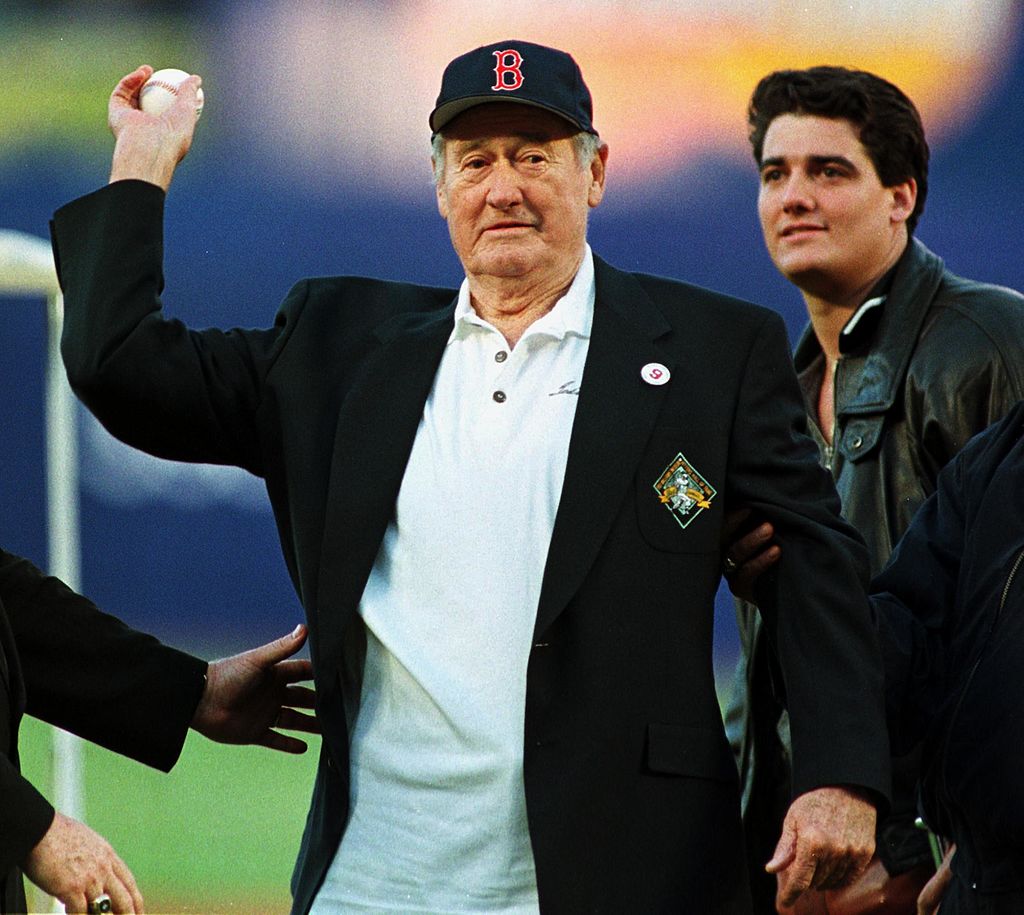MLB
Why Was Baseball Hall of Famer Ted Williams Decapitated?

Ted Williams was one of the greatest hitters in MLB history. The two-time Triple Crown winner and 17-time All-Star remains the last batter to finish a season with an average above .400. Sadly, since the Hall of Famer died in July 2002, his name is associated more with the things done to his body after death than his innumerable baseball accomplishments. Why was Ted Williams decapitated after his death?
Ted Williams considered one of the greatest hitters in MLB history
The list of accomplishments in Ted Williams’ 19-year career is long. He won six batting titles and led the American League in home runs and RBIs four times. In 1941, the 22-year-old Williams hit .406 for the season and that included 37 home runs and 120 RBIs. He was the last hitter to ever hit above .400.
Williams followed up in 1942 with another stellar performance becoming the first-ever player to win the Triple Crown leading the league with a .356 average, hitting 36 homers, and driving in 137 RBIs. Unbelievably, he finished second in MVP voting that season.
After three years of military service in World War II, Williams returned to baseball and resumed right where he left off. He finished the 1946 season with a .342 average and won the first of two MVPs in his career. He also played in his only World Series that season. He won the Triple Crown for a second time in 1947 and retired in 1960 with a lifetime average of .344.
Williams was inducted into the Baseball Hall of Fame in 1966.
Williams dies and chaos ensues
When Ted Williams died in Florida on July 5, 2002 at age 83, things got weird fast. Despite his wishes to be cremated and his ashes scattered in the Florida Keys, his son John Henry and youngest daughter Claudia opted to have his body sent to Scottsdale, Arizona to be frozen at the Alcor cryonics facility.
Cryonics is a process done with the hope that someday scientists will be able to bring the subjects back to life. The heads and bodies are stored in stainless steel containers at extremely cold temperatures.
When Williams’ oldest daughter, Bobby-Jo Ferrell learned about the plan of her siblings, she sued. John Henry’s lawyer produced a family pact signed by Ted, Claudia, and John Henry, where the three agreed to be placed into biostasis after death. While there was legal wrangling back and forth between the siblings questioning the authenticity of Williams’ signature, Ferrell eventually dropped her lawsuit due to a lack of funds.
Several months later his death made headlines for a second time when it was discovered that Williams’ head had been decapitated by surgeons and stored separately from his body at the Alcor facility.
Williams’ head allegedly abused by Alcor employees according to book
In 2009, the bizarre circumstances of the Splendid Splinter’s death and actions that followed took an even stranger twist with the release of a book from a former Alcor employee. In Larry Johnson’s book “Frozen: My Journey Into the World of Cryonics, Deception and Death,” he offered up details on how employees at Alcor allegedly mistreated the Hall of Famer’s body.
Johnson wrote in one incident where an empty tuna can was used as a pedestal to support the batter’s head and had stuck to it during transportation from one container to another. An Alcor employee allegedly decided to use a monkey wrench in an attempt to dislodge the can from the head.
“Then he grabbed a monkey wrench, heaved a mighty swing, missing the tuna can completely but hitting the head dead center,” Johnson wrote. “Tiny pieces of frozen head sprayed around the room.” The author detailed how a second swing knocked the can loose.
Alcor denied all allegations that there was any mistreatment of Ted Williams. John Henry died just two years later in 2004 from leukemia. His body was transported to Alcor.











